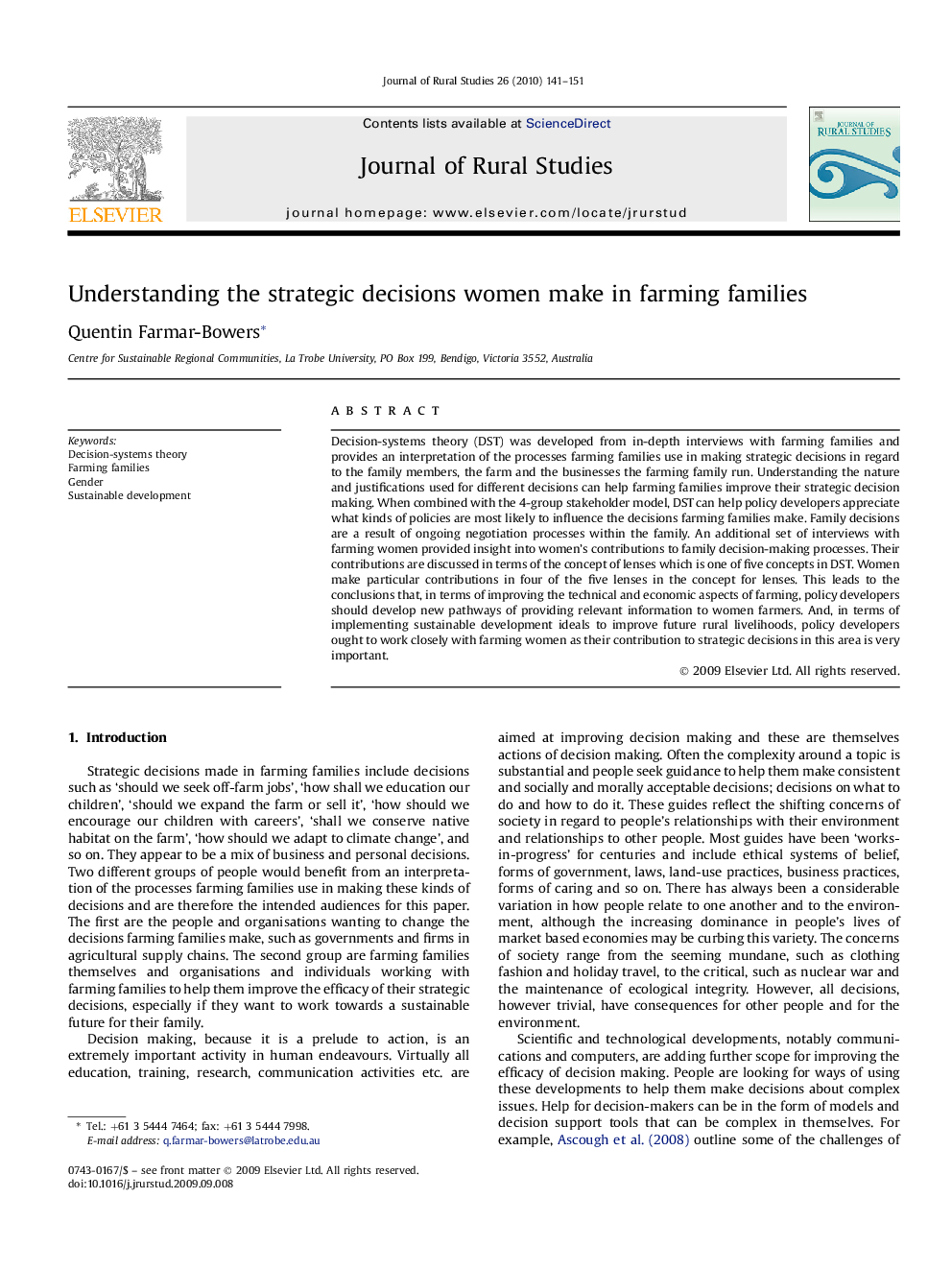| Article ID | Journal | Published Year | Pages | File Type |
|---|---|---|---|---|
| 92567 | Journal of Rural Studies | 2010 | 11 Pages |
Decision-systems theory (DST) was developed from in-depth interviews with farming families and provides an interpretation of the processes farming families use in making strategic decisions in regard to the family members, the farm and the businesses the farming family run. Understanding the nature and justifications used for different decisions can help farming families improve their strategic decision making. When combined with the 4-group stakeholder model, DST can help policy developers appreciate what kinds of policies are most likely to influence the decisions farming families make. Family decisions are a result of ongoing negotiation processes within the family. An additional set of interviews with farming women provided insight into women's contributions to family decision-making processes. Their contributions are discussed in terms of the concept of lenses which is one of five concepts in DST. Women make particular contributions in four of the five lenses in the concept for lenses. This leads to the conclusions that, in terms of improving the technical and economic aspects of farming, policy developers should develop new pathways of providing relevant information to women farmers. And, in terms of implementing sustainable development ideals to improve future rural livelihoods, policy developers ought to work closely with farming women as their contribution to strategic decisions in this area is very important.
